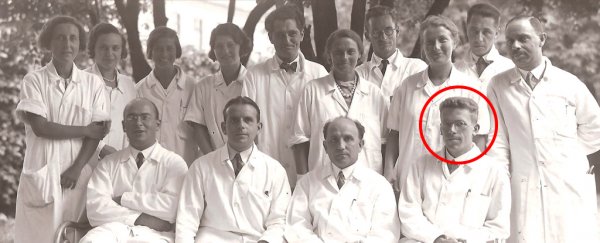Documents recently uncovered by an Austrian medical historian have revealed a famous psychologist celebrated for his studies on children with developmental disabilities sent many of them to the Nazi's infamous Am Spiegelgrund clinic.
Hans Asperger's legacy lives on in his namesake syndrome, but revelations that he collaborated with a heinous Third Reich eugenics program has added fuel to the debate over whether the condition should remain distinct from the closely related autism spectrum disorder.
While debate has raged over possible ties between Asperger and National Socialist programs during World War II, historian Herwig Czech from Vienna's Medical University has provided strong evidence of collusion based on Asperger's own words.
"The existing literature on the topic has tended to downplay or overlook any such involvement, or even to postulate that Asperger took a position of active resistance," Czech reports.
"With few exceptions, however, these judgments are based on a limited number of sources."
Children with social and communication difficulties were the subject of several key studies in the mid-20th century that established what we now describe as autism spectrum disorder ( ASD).
One such study by Asperger would come to be used to define a category of autism that has stood separate since the 1980s, based on differences in speech delay and cognition.
His work in paediatrics has long been regarded as pioneering, making it hard to reconcile this image of well respected researcher with that of him as an advocate of eugenics.
There have been hints of dark collusions, however.
"There's evidence he sat on a committee that decided whether children would live or die," author and autism expert Steve Silberman tells Australia's ABC.
By the early 1940s, the Vienna children's clinic Am Spiegelgrund was being used to euthanise individuals determined to be unfit for life according to the program that would later be referred to as Aktion T4.
While not all children sent to this facility would meet such a tragic fate, hundreds died either at the hands of medical staff or through neglect.
Meanwhile historical discussion has since tended to dismiss Asperger as a fringe player on such panels, going so far as to occasionally paint him as a Nazi opponent.
"So Asperger it is seems was playing a very complicated game of appearing to be anti-Nazi, but meanwhile signing a couple of death warrants and perhaps sending some more children to Am Spiegelgrund," says Silberman.
Speculation and circumstantial evidence aside, it's been unclear exactly what understanding – if any – Asperger had of his actions.
As a part of nearly a decade of research, Czech unearthed a trove of case records, political assessments, and personal notes penned by Asperger, including over 1000 files created during the crucial period of 1938 to 1944.
A qualitative analysis of the library revealed a man who shared an ideology with the emerging Nazi party, who openly supported their state programs on race hygiene and public health, and who was ultimately "willing to accept the killing of children as a last resort."
While his assistance was indirect, on at least one occasion Asperger played a central role in the categorisation of children who would later lose their lives under the Nazi's murderous program.
It's important to note that none of this implies that the data gathered as part of Asperger's research should be ignored, even if it was conducted under a cloud of atrocities.
This research was published in Molecular Autism.
